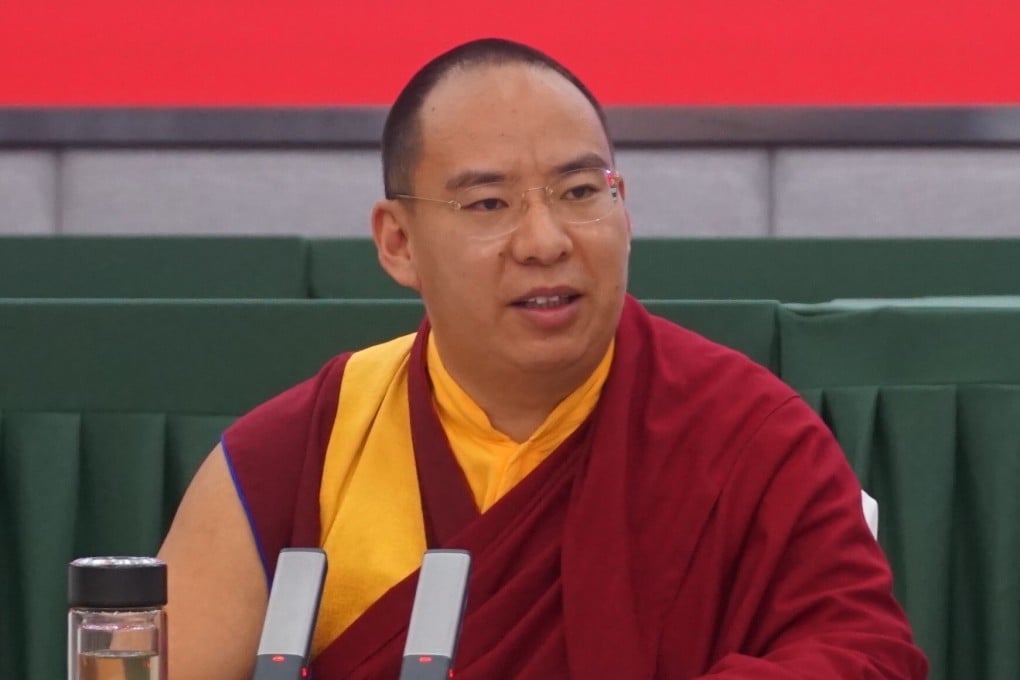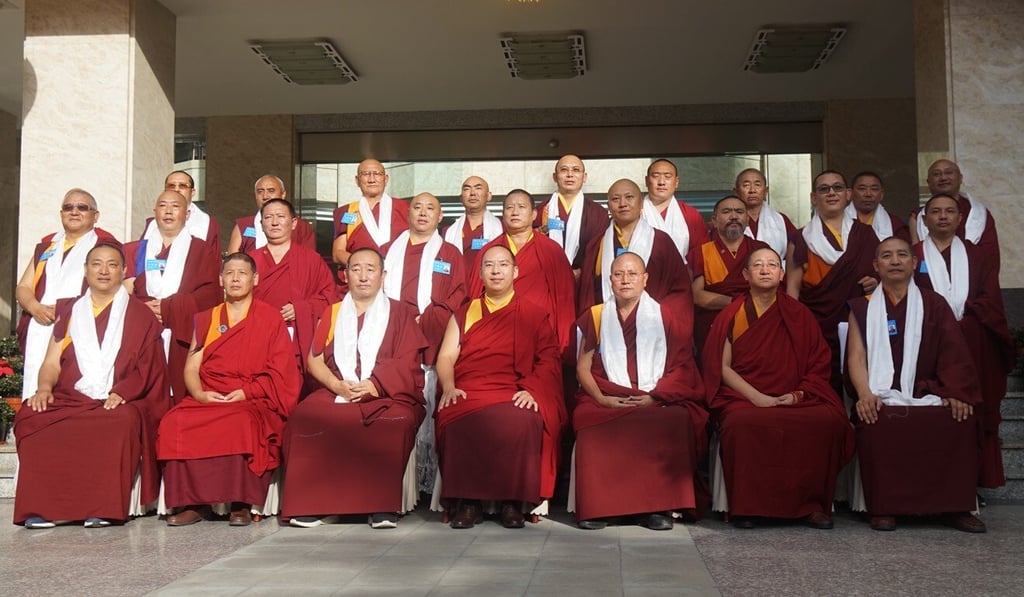China’s official Panchen Lama tells Tibetan Buddhists to stay away from separatist forces
- Gyaincain Norbu, who was chosen by Beijing, made the remarks on a tour of Tibetan parts of Sichuan and Gansu earlier this month
- He also said the religion had to be adapted to ‘socialism and Chinese conditions’ on trip to boost profile, promote Xi’s policies

Tibetan Buddhists have been told by a Beijing-appointed leader to stay away from “separatist forces” and adapt their religion to “socialism and Chinese conditions”, according to state media.
Gyaincain Norbu, Beijing’s official Panchen Lama, is the second-highest figure in Tibet’s spiritual hierarchy. According to the report, he began the tour on July 12 in the Sichuan capital Chengdu, visiting the Wenshu Monastery, and went on to the Ganzi and Aba areas of the province. He also travelled to Gansu, where he visited the Labrang Monastery. He did not visit Tibet.

He reportedly told monks during one address: “We must resolutely distance ourselves from all separatist forces, and resolutely prevent Tibetan Buddhism – including the temples, monks and nuns – from becoming a tool of Western anti-China forces to oppose the motherland and split the nation, and from becoming a victim of their political conspiracy.”
He also spoke on the Sinicisation of Tibetan Buddhism, saying it had to be integrated into Chinese culture, and adapted to socialist society.